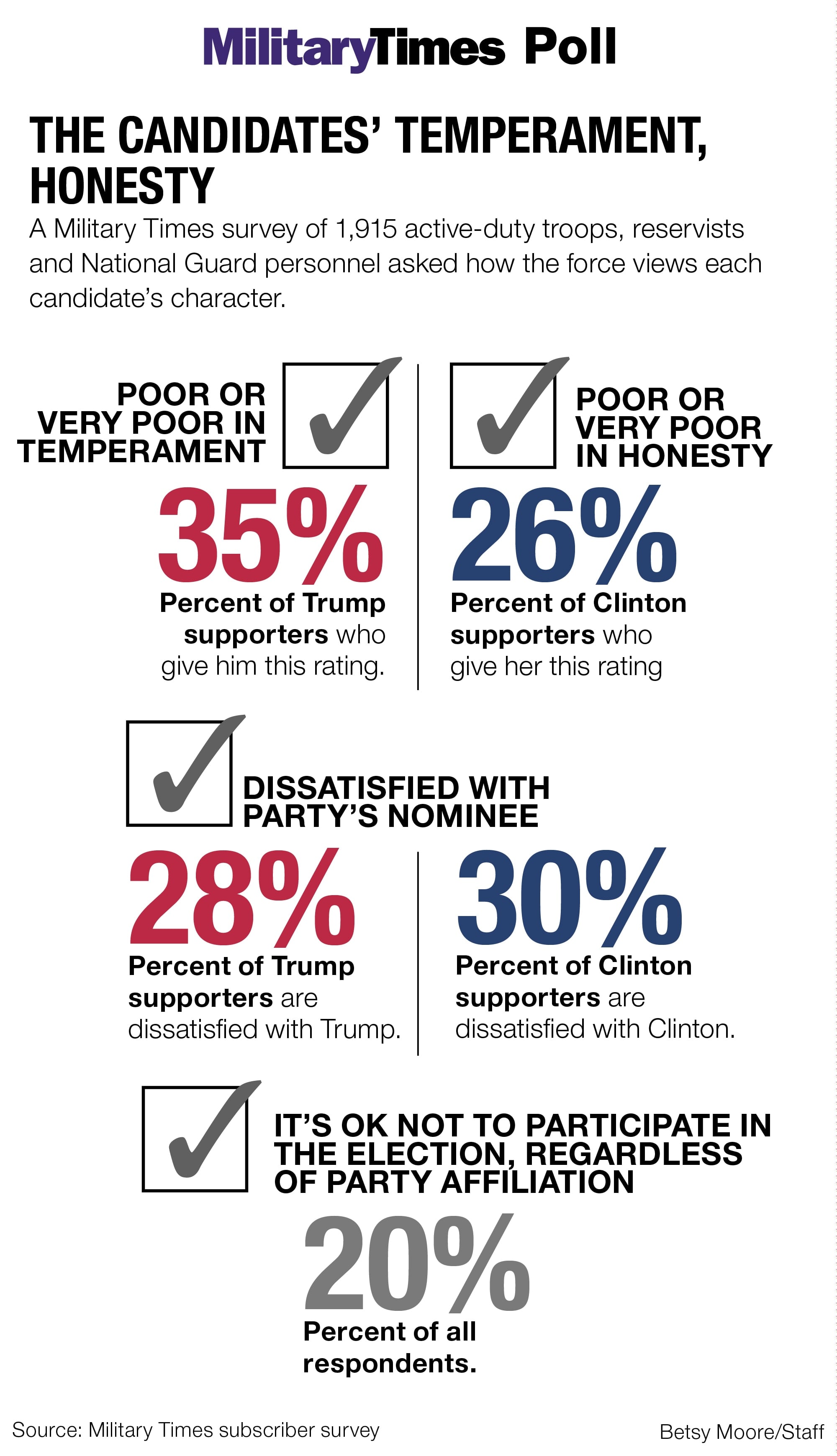The next president will inherit a military ground down by 15 years of combat, the longest period of continuous conflict in American history.
Its problems are well-documented:
The Army is deploying soldiers so frequently, it's afraid they won't be prepared to face the next global crisis.
The Navy is burning up its ships faster than it can repair them.
The Air Force is flying planes twice as old as many of its pilots, and many of its most experienced flyers are being lured away by civilian airlines that offer better pay and a much-less demanding work schedule.
The Marines are so cash-strapped, they've had to — on at least one occasion — raid a museum to scavenge aircraft parts.
As Military Times examined in its 2014 series " America's military: A force adrift," today's all-volunteer armed forces face their most significant challenges in a generation, since the troubled "hollow force" era that corrupted morale and eroded readiness in the years following Vietnam.
The country is employing its military at a rate it cannot sustain.
Now, as the major party nominees for president prepare to debate their national security plans Monday, a new poll reveals widespread opposition in the ranks to those missions that have come to define the post-9/11 era. Undertaken by Military Times and Syracuse University's Institute for Veterans and Military Times, this survey of more than 2,200 active-duty military personnel found that more than half of those who responded said they oppose — some said they "strongly oppose" — the nation-building policies pursued by Presidents Barack Obama and George W. Bush in the wake of regime changes in Afghanistan and Iraq.

It's easy to understand why troops feel this way.
Beyond their break-neck operational tempo, military personnel have watched hard-fought gains evaporate in both theaters. Provinces and cities where American troops bled and died have fallen back into the clutches of brutal extremists whom the U.S. sought to displace in the name of peace, prosperity and democracy.
Helmand. Nangarhar. Kunduz.
Ramadi. Fallujah. Mosul.
The list goes on and on and these fights aren't even over yet.
In Afghanistan and Iraq, fragile militaries, propped up by American advisers and firepower, are battling potent insurgencies. Meanwhile, U.S. forces are actively engaged — some would argue stretched too thin — in numerous hotspots around the world. They're conducting airstrikes in Libya, patroling the South China Sea, training NATO allies along Russia's borders. The pace is relentless, and yet more must be done to more fully provide for the nation's defense.
Most troops surveyed by Military Times and IVMF said they believe the nation should be considerably more engaged in direct counter-terrorism activities, homeland defense, cyber security and nuclear deterrence. It's clear the military's role in each of those areas is — and will continue to be — vital.
But something has to give.
Regardless of who wins the White House in November, he or she must prioritize revitalizing America's war weary armed forces. Not with vapid rhetoric, but by truly targeting troops' morale. That means listening to their concerns and finding feasible solutions to these very serious challenges. In essence, clearly defining and articulating strategic purpose and objectives. Not defaulting to "a military solution."
This will require a firm but collaborative approach to working with Congress, and up-front assurance that all parties will set aside partisan fighting and truly work together to justly fund and equip the military — and pay those in the ranks what they deserve.
Before committing the armed forces to another open-ended nation-building mission, the next commander in chief first owes the American people a military that is ready and able to defend the nation and advance its most pressing interests.





